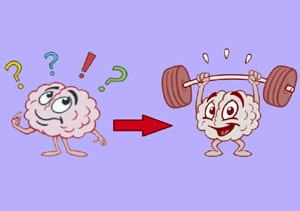Improve your reading and listening comprehension with selected text and a video podcast together with illustrated flashcards on how to keep your brain sharp Research has shown that there are many ways you can hone your mental sharpness and help your brain stay healthy, no matter what age you are. Doing certain brain exercises to help boost your memory, concentration, and focus can make daily tasks quicker and easier to do, and keep your brain sharp as you get older. Source: https://www.healthline.com/ https://www.youtube.com/watch?v=RETzkLeQuj0 How to have a sharper brain? There are various strategies we can use to have the best brain-boosting. ...
Home » Reading Practice in English » Steps to Keep Your Mind Sharp – Reading Practice

Steps to Keep Your Mind Sharp – Reading Practice
Updated: by Hajar Aziz Zanjani
Time to Read: 5 minutes | 331 Views | 2 Comments on Steps to Keep Your Mind Sharp – Reading Practice
Share This Post
About the Author
Hajar Aziz Zanjani is a professional Persian / Farsi teacher and full-time content developer in Farsi at LELB Society. She has published hundreds of original Persian lessons, created hundreds of Persian podcasts, and taught so many Persian students all around the globe. She's got an MBA degree and is an SEO expert.
Number of Posts: 244



There are several activities we can do to make our brains sharper and more active. As the reading mentioned, learning a new language, eating healthy, meditation, and social interactions all are helpful in this case. In all of these methods, it is essential that we stay consistent and I believe a great sense of self-confidence and self-regard are influential.
Keeping our mind sharp is an important responsibility upon our shoulders. This is because mental degeneration could happen subtly as we might not feel any physical pain over the passage of time.